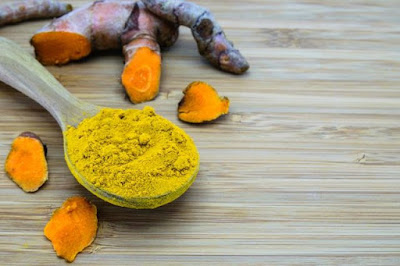300x600
Antioxidants protect the immune system by fighting free radical cell damage that leads to chronic diseases and cancers. Antioxidants may benefit patients with various lymphomas, cancers of the white blood cells in the immune system, by slowing tumor growth and enhancing the effects of chemotherapy. According to a report in the International Journal of Cancer, antioxidants can also lower the risk of developing lymphoma. The study suggests getting antioxidants through foods, rather than taking supplements.

Curcumin
Curcumin is the substance that gives turmeric its yellow color. Curcumin can interfere with the energy supply needed by malignant cells, thereby causing those cells to die. A 2009 study in Expert Opinion on Investigational Drugs concludes that curcumin has potential as a lymphoma therapy because it can suppress tumor growth, kill malignant cells and inhibit metastasis.
Selenium
Selenium is found in Brazil nuts, cereals, meat, fish, and eggs. A report in Biological Trace Element Research, showed that sodium selenite (a dietary form of selenium) administered together with chemotherapy eliminated more malignant lymphoma cells than chemotherapy alone.
Beta-1,3 D-glucan
Beta-1,3 D-glucan, found in oats, barley, and reishi, shiitake and maitake mushrooms, can strengthen the immune system, enhance the production of blood cells, and kill tumor cells. According to the Journal of Experimental and Clinical Cancer Research, beta-1,3 D-glucan may benefit lymphoma patients who are undergoing chemotherapy by helping the body to maintain adequate blood cell production.
CoEnzyme Q10 (COQ10)
CoQ10 is a substance that works both as a coenzyme to generate cell energy and as an antioxidant to protect cells. Lymphoma patients generally have low amounts of CoQ10 in their blood. CoQ10 may help these patients boost their immune systems and energy levels. Oily fish, organ meats and whole grains are the best sources of natural CoQ10.
Green Tea
The main polyphenol antioxidant in green tea is the catechin called epigallocatechin-3-gallate (EGCG), a powerful antioxidant. A 2005 study reported in Cancer Research shows that EGCG inhibits lymphoma cell growth and promotes tumor cell death.
Resveratrol
Resveratrol is a powerful anti-cancer agent. According to the International Journal of Oncology, resveratrol interferes with the pathways of malignant cells, preventing them from proliferating. The study suggests that resveratrol may be useful in treating aggressive lymphomas.
Lutein and Zeaxanthin
Lutein and Zeaxanthin are carotenoids found in green leafy vegetables, egg yolks, kiwi and corn. A 2006 study in the American Journal of Clinical Nutrition found that people on a diet rich in these antioxidants had a lower risk of developing non-Hodgkins lymphoma.


